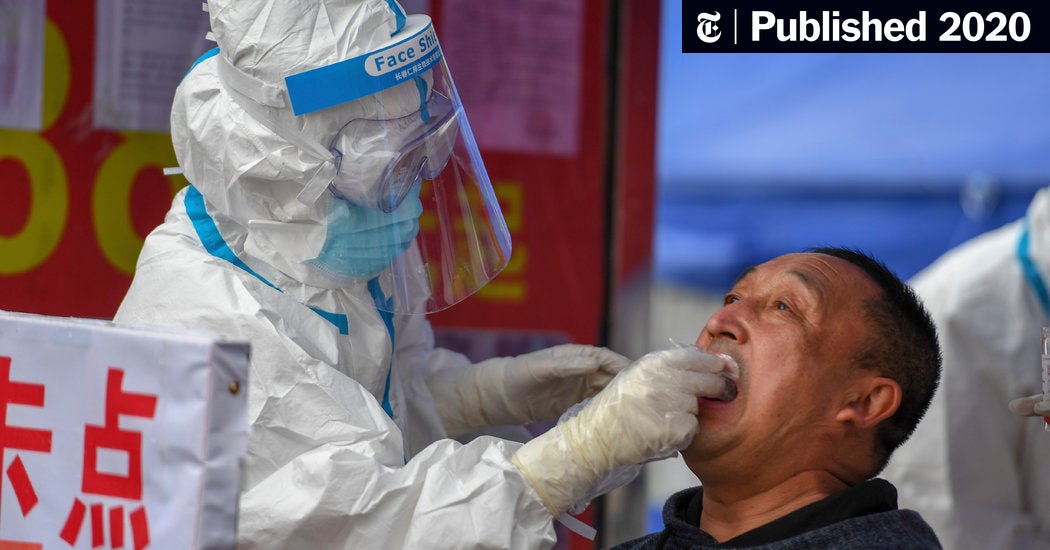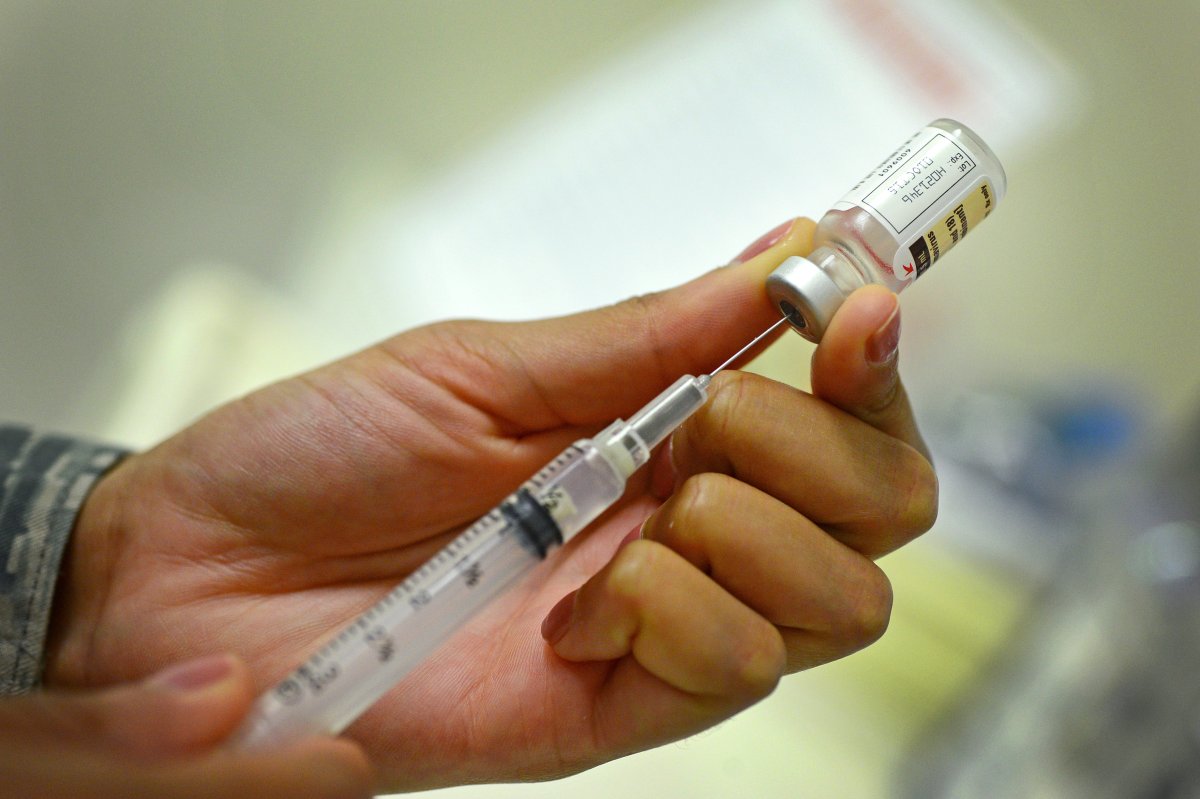Offline
Unfortunately, this looks like bad news in the U.S. unless there is some weird dumping of reports of old tests over a three day period:
Follow along with the video below to see how to install our site as a web app on your home screen.

Note: this_feature_currently_requires_accessing_site_using_safari
In your post you alluded to a dynamic of ‘what’s best for my family, even if it harms other families’
But it seems like you were indicating ‘families doing best for each other’
(But maybe I misread)
I think the dynamic is even more pernicious
bc of government inaction and mixed messaging, the ostensible question is not my family vs others, it’s my family in the short term vs my family in the long run
And that’s deeply ****** up
And can we get off the China tip?
That’s an authoritarian, secretive, propaganda driven dictatorship
We can’t fix that from here
What we should be laser focused on is this country avoiding china’s path
not sure if this has been posted here or not but this looks like good news
New data suggest people aren’t getting reinfected with the coronavirus
People who recover from COVID-19 but later test positive again for the coronavirus don’t carry infectious virus, a study finds.www.sciencenews.org
Are you suggesting that these questions could have been definitively answered without question had we done some kind of research effort that is currently not being done? Mankind has known about this virus since December and the West has only been studying it since January. Of this year. Consider that we don't even fully understand cancer or even the common cold (many of which are caused by coronavirus), I think it's unrealistic to conclude that we would "know the answers" in some sort of concrete/conclusive sense. The biomedical and biotech effort focused on this virus right now, worldwide, is unprecedented.
The US already has the world's leading infrastructure for biomedical research through a network of government, academic, and commercial research facilities funded in various ways including heavily through federal grants. I think there has been quite a bit of research (including US grant / NIH research) on some of those topics. I'm not sure that throwing more money at it would lend to more conclusive knowledge.
It's important to note that with a novel, deadly virus with a full pathology profile that is unknown, you can't really sign people up to get infected so that they can be studied. Research on animals is helpful but it certainly isn't conclusive as to both the human body and how humans socialize. So most of the research on topics like pathways and ease of transmission are either in the lab to draw conclusions about the dynamics of the virus itself (which leads to potentially persuasive but certainly not conclusive results), or through study of known infections by trying to piece together hypotheses based on an investigation about how they happened (e.g. the analysis of the bio-medical conference in Boston that resulted in dozens of infections).
But you can't just do experiments by putting an infected person in a room with uninfected people to study how the HVAC may spread the virus - you can't ethically expose human research subjects to a deadly virus.
There are, however, growing volumes of competent research on those topics. For example, I don't think there is any reasonable scientific doubt that SARS2 spreads (not exclusively) via aerosolized particles expelled and even exhaled by an infected person - and those particle aerodynamics have shown to be fairly resilient. And that resiliency means that they spread through the air, and can remain aloft (and subject to air flow including that caused by HVAC). New research strongly suggests that there is a concentration component to infection that can come from short exposure to high concentrations of virus, or longer exposure to lower concentrations of virus. In other words, short exposure a airborne particles carrying virus doesn't necessarily result in infection if the concentrations are low. Longer or more concentrated exposure will likely have higher infection rates. All of this means that indoor environments are more conducive, and indoor environments with lots of people breathing the same air over a period time will likely see higher infection rates than outdoor activities with distancing.
Research on "asymptomatic" transmission is limited by the fact that most asymptomatic infections don't alert the person to the fact that they're infected - which makes study difficult. Same goes for rates of infection from children.
I think there is substantial, quality research to examine here. But expecting that there can be some kind of conclusive set of "answers" that should have been figured out by just doesn't really make much sense if you consider the full range of issues involved with that.
I think we absolutely could have answered at least some of the questions. The only other countries with the same quantity and quality of resources we do (China, basically) has been actively lying about everything.
Like I said, we used to lead the world in this regard. Now the best info we have are speculative studies out of other countries.
"Earlier this week, a Louisiana lawmaker shelved his effort to cut state unemployment aid during the coronavirus outbreak after learning the proposal would keep the state from receiving federal assistance.
Republican Rep. Gerald "Beau" Beaullieu was trying to keep unemployment aid for Louisiana residents who are out of work from exceeding the money they earned in their previous jobs.
Louisiana Workforce Commission Secretary Ava Dejoie told a House committee Wednesday the proposal would run afoul of federal virus aid requirements.
She said that would make Louisiana's unemployed workers ineligible to receive the $600 weekly federal unemployment benefit available through July."
I've read a few times where people that have tested + for it a second time were showing symptoms. I guess that could also be false negatives prior to that I guess. Just know more than once I've read that.Also saw Fauci last night late on CNN.
Said they are finding that the remaining reinfection is "dead" - the virus while present, cannot replicate - lost that ability. Something to that effect.
Unfortunately, this looks like bad news in the U.S. unless there is some weird dumping of reports of old tests over a three day period:

As the Chinese authorities confront scattered outbreaks of the coronavirus in the country’s northeast, they are turning to many of the same strict lockdown measures that were a hallmark of the effort four months ago to stamp out the epidemic in the central city of Wuhan.
Sure, they'll fill up quickly, but it won't be overnight. Even NYC took several weeks before the hospitals became overwhelmed. It just seems like we would have heard something before today and that made me curious.
Seriously? Sometimes life just won't leave you alone.A new outbreak in China forces Wuhan-style lockdown.
After New Coronavirus Outbreaks, China Imposes Wuhan-Style Lockdown (Published 2020)
Infections in the northeast have led officials to sequester hundreds of thousands at home. “China doesn’t want to take any chances,” one expert said.www.nytimes.com
While I agree with your sentiment and think better leadership and more money would have helped, it's pretty unrealistic to think that we can definitively answer any of these questions in three or four months. As noted by Chuck, a major part of the problem is that scientists and doctors can't do experiments with humans which means that they are either left with doing animal testing which is far from conclusive because of differences in our biology and other variables, lab test which are inaccurate for the same reasons, or relying on epidemiology. Epidemiology is speculative at best if it lacks good data over a long period of time and that isn't available for COVID both because the virus is so new and because collection of data is more or less being left up to individual states and local governments. Obviously the second part could and likely should have been changed, but it's nearly impossible to come to any good conclusions based on even perfect data over only 3 or 4 months.
Even in the best of situations with decades of good data, epidemiology at best gives you the most likely answer. Basically, they wait until the weight of the evidence is high enough on one side or the other and then make the call regarding what they think the correct answer is in terms of increasing risks and higher probabilities that that something causes something. There are many chemicals and cancer causing substances for which it took many decades to figure out if they actually caused cancer, what level caused cancer, and how to limit or stop them from causing cancer because we had to rely on epidemiology and rat studies rather than actual experiments where you expose people to those substances. Which rightly so, could not be done due to medical ethics.

 www.upi.com
www.upi.com